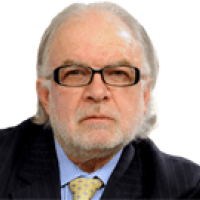Major changes under way in US Middle East politics
Two US presidents ago, politically speaking, the Middle East was a very different place than it is today. For better or for worse, alliances among foreign powers and certain Mideast countries have shifted or are in the process of doing so.
Long-standing relationships, such as the one between the United States and Saudi Arabia, are on shaky ground as Russia appears to have made inroads with the Saudis as never before. This is just one example.
A large part of the blame for the Middle East’s deep-rooted conflicts continuing can be attributed to major foreign powers that have consistently intervened politically, economically or militarily to better position their country and their interests.
The most noticeable change in the Middle East is the gradual decline of US influence in the region, influence that has been replaced by that of Russia or Iran and Turkey, the latest of unholy alliances to emerge from the chaotic climate that prevails in the region.
Russia fought a hard battle during the Cold War years to maintain a strong footing in the region. More recently, weak and undecided US foreign policy regarding the Middle East left the door open for Moscow to step in. Russia’s strong-headed president, Vladimir Putin, wasted no time in filling the void created by the absence of the United States in the region.
The never-ending tug of war played by various political blocs seeking to extend their influence either directly or via proxy has changed the geopolitical map. If not forever, at least until the next major adjustment in the region takes place, which in this part of the world typically runs for about 40-50 years. Understandably for the people living under the authoritative whims of those in power, it can certainly feel as though it was forever.
After the Berlin Wall fell in 1989, there was a brief opportunity during which the United States and its NATO allies could have helped Russia make a healthier transition from a socialist, communist state towards a free-market economy, with a democratic form of government. It was a period when Russia felt it was at its most vulnerable with its protective satellite countries that were designed to act as a buffer zone between the borders of NATO countries and Mother Russia.
Instead, NATO members went after countries of the former Soviet Union and former members of the Warsaw Pact, welcoming them into the European Union and NATO. In the process, upsetting Moscow more and more.
Adding insult to injury, the United States and its NATO allies set up missile and radar systems in the Czech Republic and Poland.
As could be expected, this worried the Russians, who were struggling with a tattered economy and a public’s morale as low as it could be. The average Russian awoke one morning to find his currency practically worthless and watched in horror as a new class of millionaires emerged selling bits and pieces of the country to the highest bidder.
From nuclear weapons to biological agents to humans, everything was on sale for the right price.
The West cherished the moment and conducted its policy in the Middle East by ignoring Russia, leaving it out in the cold. It was one thing to continuously undermine Moscow when it was under Soviet rule but it became very personal when the West continued to consider Russia an enemy. So Putin decided to hit the West where it would hurt the most. He would go after the money, such as convincing the Turks to purchase Russia’s S-400 missile defence system.
The North Atlantic defence perimeter was breached through Russia’s inroads with Turkey. What is at the same time fascinating and quite worrisome is how history seems to repeat itself. What led Germany to national socialism and the outbreak of the second world war were the harsh conditions that France and Britain demanded in reparations from Germany for the disaster of the first world war. While the conditions are not exactly the same, nevertheless, let us hope there is no repetition of history.
Claude Salhani is a regular columnist for The Arab Weekly.
This article was originally published in The Arab Weekly.




